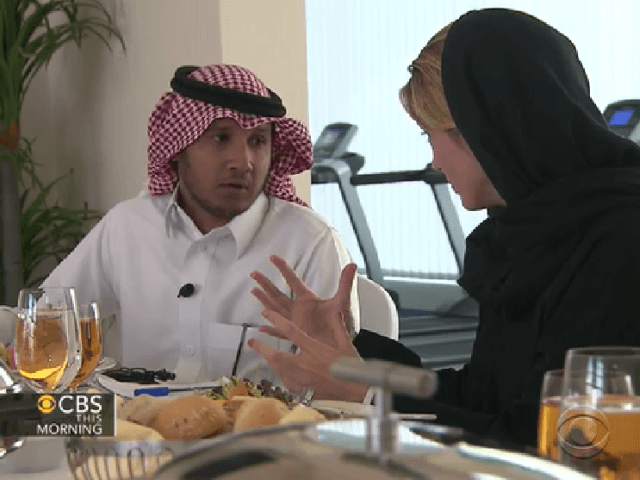Many Al-Qaeda and Taliban-linked jihadists are living in luxury, enjoying the comforts of an indoor swimming pool, sun-splashed patios, large-screen televisions, king size beds, conjugal visits, and lavish gym facilities, courtesy of Saudi Arabia’s deradicalization center.
“Our focus is on correcting their thoughts, their misconceptions, their deviation from Islam,” Yahya Abu Maghayed, a director at the facility known as the Mohammed bin Nayef (MBN) Counseling and Care Center, told the Agence France-Presse (AFP) news agency during “a golf cart tour of the sprawling, palm tree-lined complex.”
“We make the ‘beneficiaries’ feel they are normal people and still have a chance—a chance to return to society,” added Abu Maghayed, noting that the center avoids calling them prisoners or inmates.
The reform facility is located on the outskirts of the Saudi capital Riyadh.
Abu Maghayed boasts that “86 percent” of the center’s 3,300 graduates have successfully returned to civilian life.
The director indicated that of the remainder 14 percent, “most only showed signs of ‘deviant behavior’ and only a minuscule number relapsed into violent jihad,” reports AFP.
Currently, the two deradicalization centers across Saudi Arabia house an estimated 130 men with the MBN facility holding about 80, including all the former Guantánamo prisoners sent to the kingdom.
“The centers are run by psychologists, social workers, and religious scholars, who engage the typical beneficiaries in a minimum of three months of intensive religious instruction and counseling intended to reverse their radicalization, as well as assistance with job placement or further education after they graduate,” notes Foreign Policy (FP).
Both Saudi and U.S. officials reportedly praise the reform program “as the gold standard for rehabilitating Guantánamo detainees, foreign fighters, terrorists, and their sympathizers,” it adds.
AFP suggests that the deradicalization facility is similar to a “five-star” hotel, reporting:
The convicts are housed in a series of low-slung buildings, outfitted with large-screen televisions and king-size beds, all framed by manicured lawns.
Many linked to groups such as Al-Qaeda and the Taliban walk around freely in flowing white robes, and have access to a spacious gym, a banquet hall and furnished apartments reserved for visits from spouses.
The reform “complex” reportedly has an “indoor swimming pool, sun-splashed patios, and liveried staff,” serving as “a cushy halfway house between prison and freedom.”
Despite the war raging in Yemen, Saudi Arabia is expected to liberate up to 13 Yemenis once held at the U.S. military prison in Guantánamo Bay, Cuba, as part of the deradicalization program.
FP describes the group of Yemenis as the “first non-Saudis to graduate from its 13-year-old deradicalization program,” adding that the center’s “namesake has fallen victim to Saudi Arabia’s internal shake-up: Mohammed bin Nayef, the kingdom’s former crown prince and interior minister, was supplanted in June by his cousin Mohammed bin Salman.”
“The new crown prince recently embarked on a purge that has swept aside businessmen and princes tied to the old political order—and the fallout calls into question not only the fate of these Yemeni men, but the program as a whole,” it adds.
U.S. President Donald Trump’s administration has reportedly expressed dismay over Saudi Arabia’s decision to free the Yemenis.

COMMENTS
Please let us know if you're having issues with commenting.